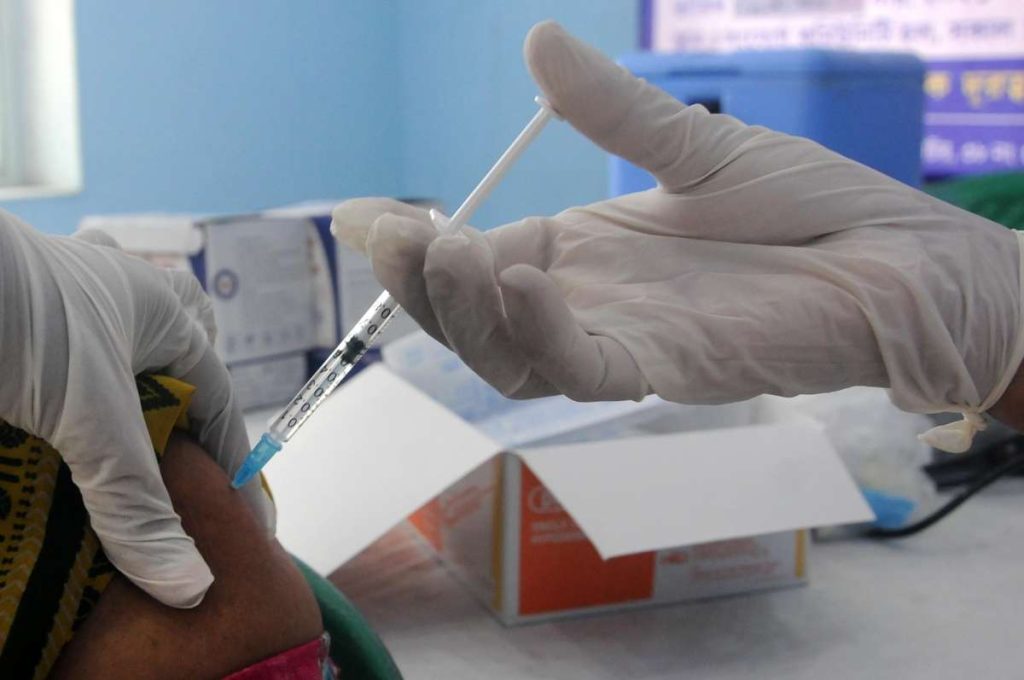
The scale of investment and regulatory development already implemented in Saudi Arabia are already helping to streamline the country’s capacity for trials, testing, and bioethics…reports Asian Lite News
Saudi Arabia has the potential to become a world-leading hub for biotech research, development, and pharmaceutical manufacturing driving economic diversity and addressing national healthcare and food security issues, according to the latest report by Strategy& Middle East, part of the PwC network, titled “Accelerating Saudi Arabia’s Biotechnology Sector.”
The analysis comes amid reports that merger and acquisition activity in pharmaceutical and life sciences in the United States could reach USD225 billion to USD275 billion in 2023. Saudi Arabia has already seen USD3.9 billion in total research and development (R&D) since 2021, with significant investments in flagship biotech R&D institutions and targeted regulatory frameworks. With state-of-the-art labs and innovation initiatives like the Saudi Human Genome Program and the Saudi Network for Clinical Trials, the country is already well-placed to develop a leading biotech cluster over the coming decade.
“The health, social and economic benefits of a thriving biotech sector in Saudi Arabia are significant. Biotechnologies, with their ability to develop groundbreaking technologies and medical products, can revolutionize not just the national non-oil economy, but everything from the chemicals industry to agriculture, food security, and human health,” said Dr. Walid Tohme, Partner with Strategy& Middle East.

The scale of investment and regulatory development already implemented in Saudi Arabia are already helping to streamline the country’s capacity for trials, testing, and bioethics – and the nation’s educational ecosystem is ahead of the curve.
However, to sustain growth in biotechnology, policymakers and the private sector can use four enablers to gain momentum and elevate Saudi Arabia on the global biotechnology stage.
“Saudi Arabia has laid a solid foundation for biotech through a series of national investment strategies and a streamlined regulatory framework. However, the next step involves establishing a more nuanced, targeted approach that brings government and private sector stakeholders together with shared objectives and strong investment incentives,” said Claudia Palme, Senior Executive Advisor with Strategy& Middle East.
The four enablers set out in the new Strategy& report are:
Invest more public and private funding in commercialization: Innovation in the biotech sector requires substantial investment in patient capital, particularly within the medical sub-sector which demands that drugs and medical devices undergo trials and tests for up to seven years. Even though Saudi Arabia has invested USD 3.9 billion since 2021, a majority has been invested in basic research rather than training and commercialization of marketable products. To overcome these challenges, Saudi Arabia requires more private venture funding to help a vibrant biotech ecosystem take hold.
Expand human capital and the talent pipeline: Analysis shows that nearly half (47 percent) of entry-level jobs in the biosciences field require advanced degrees, compared with 27 percent in other industries. Furthermore, there is a limited focus on the skill sets required to sustain a substantial biotech hub. To supply this eventual need, Saudi Arabia needs to channel significant investments into promoting world-class education, particularly in science, technology, engineering, and math (STEM).
Develop state-of-the-art infrastructure: To sustain growth, the sector also needs an enhanced digital infrastructure, including internal networks, cloud computing, cybersecurity, advanced AI, analytics, and robotics. Centralized bodies, such as the Research, Development, and Innovation Authority and the Saudi National Institute of Health can leverage infrastructure investments at institutes like King Abdullah Economic City and KSU to form a collaborative network and maximize utilization.
Create a strong framework of regulation and incentives: Regulatory bodies should adopt proactive, innovation-led regulation that supports inward investment, protects patients, attracts investors, and protects intellectual property. To get there, Saudi Arabia requires a set of incentives comparable to other global biotechnology hubs – such as expedited import permits, single-window business establishment procedures, streamlined hiring, and tax privileges. Recognizing the global competition for talent and investment, many of these incentives are under development.
“By deploying these four enablers, Saudi Arabia can cultivate a robust and truly world-leading biotech industry. Furthermore, a nationwide ecosystem of biotech infrastructures from NEOM to KAUST and clusters in Riyadh, will yield a successful sector that creates economic diversification, skilled jobs and a plethora of health, social and economic benefits,” concluded Irfan Merali, Principal with Strategy& Middle East.
ALSO READ: UN decries roadblocks to India-proposed global terrorism pact


